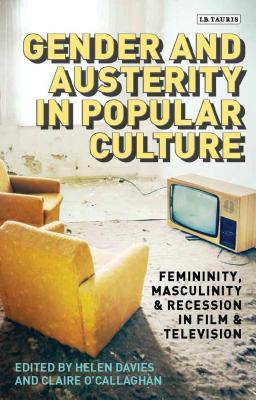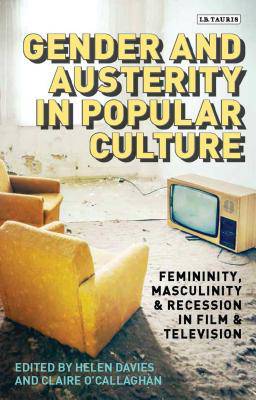
Bedankt voor het vertrouwen het afgelopen jaar! Om jou te bedanken bieden we GRATIS verzending (in België) aan op alles gedurende de hele maand januari.
- Afhalen na 1 uur in een winkel met voorraad
- In januari gratis thuislevering in België
- Ruim aanbod met 7 miljoen producten
Bedankt voor het vertrouwen het afgelopen jaar! Om jou te bedanken bieden we GRATIS verzending (in België) aan op alles gedurende de hele maand januari.
- Afhalen na 1 uur in een winkel met voorraad
- In januari gratis thuislevering in België
- Ruim aanbod met 7 miljoen producten
Zoeken
Gender and Austerity in Popular Culture
Femininity, Masculinity and Recession in Film and Television
€ 271,45
+ 542 punten
Omschrijving
From the gritty landscapes of The Hunger Games and The Walking Dead, to the portrayal of the twenty-first-century precariat in Girls, this book explores how transatlantic visual culture has represented and reconstructed ideas of gender in times of financial crisis. Drawing on social, cultural and feminist theory, these writers explore how men and women experience austerity differently and illuminate the problematic ways in which economic policy can shape how gender is presented in popular culture. Written from the perspective that the popular is indeed political, this book considers film, literature and television's ideological attitudes towards race, sex and disability. It also takes into account how mass culture has responded to austerity in the past and the present, whilst examining the impact that feminism will have in the future.
Specificaties
Betrokkenen
- Uitgeverij:
Inhoud
- Aantal bladzijden:
- 240
- Taal:
- Engels
- Reeks:
Eigenschappen
- Productcode (EAN):
- 9781784536640
- Verschijningsdatum:
- 30/01/2017
- Uitvoering:
- Hardcover
- Formaat:
- Genaaid
- Afmetingen:
- 145 mm x 218 mm
- Gewicht:
- 680 g

Alleen bij Standaard Boekhandel
+ 542 punten op je klantenkaart van Standaard Boekhandel
Beoordelingen
We publiceren alleen reviews die voldoen aan de voorwaarden voor reviews. Bekijk onze voorwaarden voor reviews.








